Google, Apple, and Mozilla Win in the Antitrust Case Google Lost
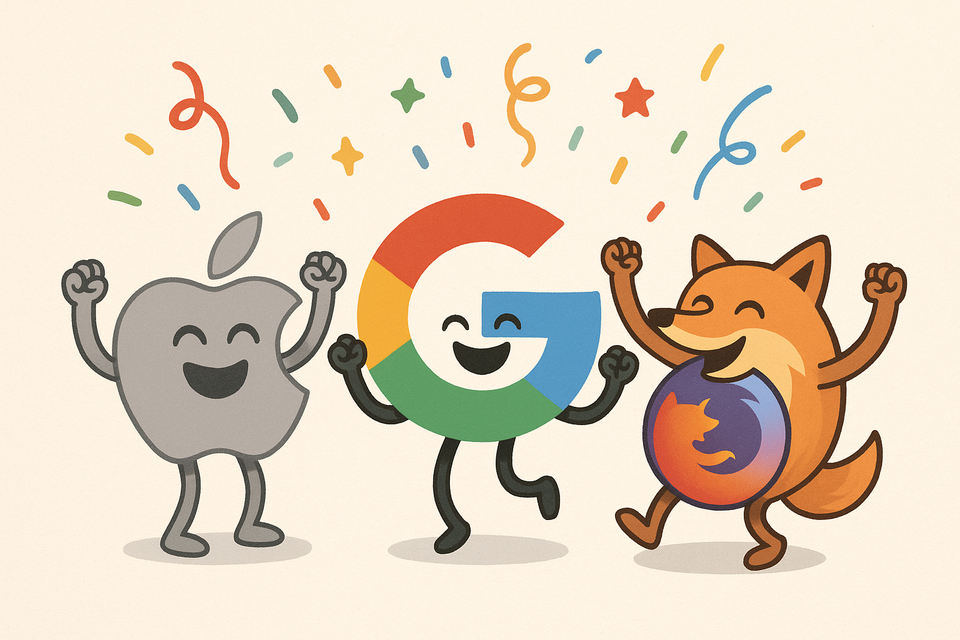
I had a sneaking suspicion today might be the day where Judge Amit Mehta would come back with the remedies in Google's antitrust trial. Sure enough...
And sure enough, those remedies are pretty much exactly what I expected and have been writing about for months – over a year. While any deals to make Google the exclusive search engine on partners' devices and services are going away, the payments that Google makes to those partners aren't necessarily – so long as they're not to ensure exclusive default placement.1 It felt like everyone was looking past this nuanced but important distinction. So I spelled it out, once again, in my post last week:
I will just continue to note that while the default placement payments may go away, I'm not sure the ability for Google to pay Apple for traffic acquisition would or should go away. That's important because it points to a world where Google is still paying Apple billions of dollars annually, assuming customers keep using Google on Apple devices even if it's not the default. I feel like this isn't being talked about nearly enough!
As linked in there, I've been noting the very real possibility since day one when Google lost the antitrust case just over a year ago. As I wrote back then:
The Apple element of this is arguably just as interesting as the Google element, because as everyone is well aware by now, a massive percentage of Apple's now-all-important Services business – not to mention overall profit – is their search deal with Google. To the tune of $20B+ a year.
While Su suggest the revenue sharing would stop, I imagine it would just change. No more paying for default placement in lump sums and instead perhaps paying out a share for actual usage. The argument here might be that this would still give Google too much power because they could afford to pay more than anyone else, but an equalized market rate would incentivize product over payment.
Regardless, the Occam's razor read of such a remedy suggests a situation that would perhaps not change all that much. Because it wouldn't dictate that Android phone makers or Apple make another search engine the default, it would likely instead lead to more pop-ups asking people to explicitly make a choice. And Google would still have a huge market advantage there, simply thanks to brand awareness, if nothing else. And if companies were allowed to bid on placement in such a screen, the effect would likely be even more muted.
So yeah, this is a huge win for Apple, but perhaps even more so for Mozilla, which may very well have died without any sort of traffic acquisition payments from Google. And that's exactly what the judge rightfully recognized:
"Cutting off payments from Google almost certainly will impose substantial — in some cases, crippling — downstream harms to distribution partners, related markets, and consumers, which counsels against a broad payment ban."
Not having to pay Apple or Mozilla or others for the search traffic they were naturally going to be sending anyway regardless of the placement would have been a huge win for... Google.
As I wrote back in January when Apple tried to inject itself into the case – to ensure the court didn't hand such a massive win to Google in an antitrust case they lost:
It's a sort of weird, "why buy the cow, when you're getting the milk for free?" situation the government would set up here. Only it's more like, "you're not allowed to buy the cow, you simply must enjoy the milk for free."
So yeah, the judge remedied that! And so Eddy Cue and Tim Cook can breathe a huge sigh of relief tonight. And Mozilla can just breathe tonight.
But so too can Google. This case is about them, after all. And while any exclusive default placement deals are dead and they will have to start sharing some search data with rivals (which they already have to do to some degree in the EU, and it hasn't really mattered), the government isn't getting the big trophy it sought here: Chrome.
Again, from day one when it was announced the government would try to go after Google's browser (which I also suspected they might do beforehand), I laid out a pretty clear picture as to why Chrome wasn't going anywhere. It just made almost no sense on a number of fronts. Chrome is valuable to Google – insanely valuable to Google – but not in the ways it would be to others, sorry OpenAI. And nice try, Perplexity. And while Google was perplexingly trying their hardest to make a sell-off make more sense to the judge – by, um, starting to bake Gemini into Chrome! – the reality is that AI is still too nascent a field, with too much competition for the court to do much here. Sorry, Tim Wu.
This will have to be litigated in hindsight, as is the usual case, it seems. But it also seems like there's no way to know how this all plays out right now. And, in fact, it feels like if anything, AI is proving that market forces work even when the government doesn't get involved. Just as happened to Microsoft way back when, despite the government constantly taking credit there.
Google Search is in the process of being disrupted. Not by the antitrust case or any of these remedies, but by a new technology naturally rising. Google can keep insisting this isn't happening, but just follow their actions. Those say all you need to know. It's all Gemini, all the time, everywhere.
And if the placement in Search helps Gemini gain a dominant position in AI, well, I suspect the judge will revisit this whole situation. But it's still a very big "if".
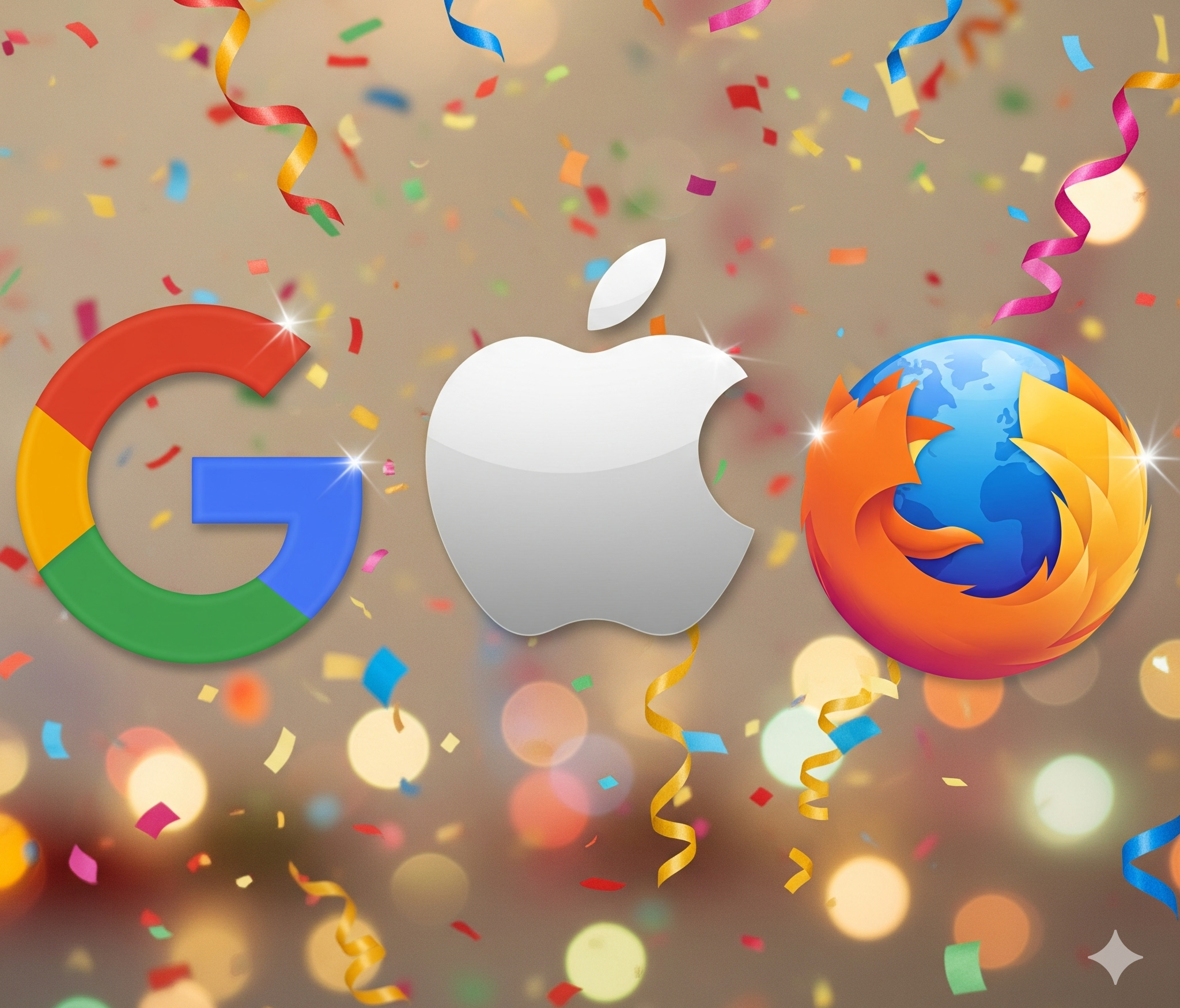
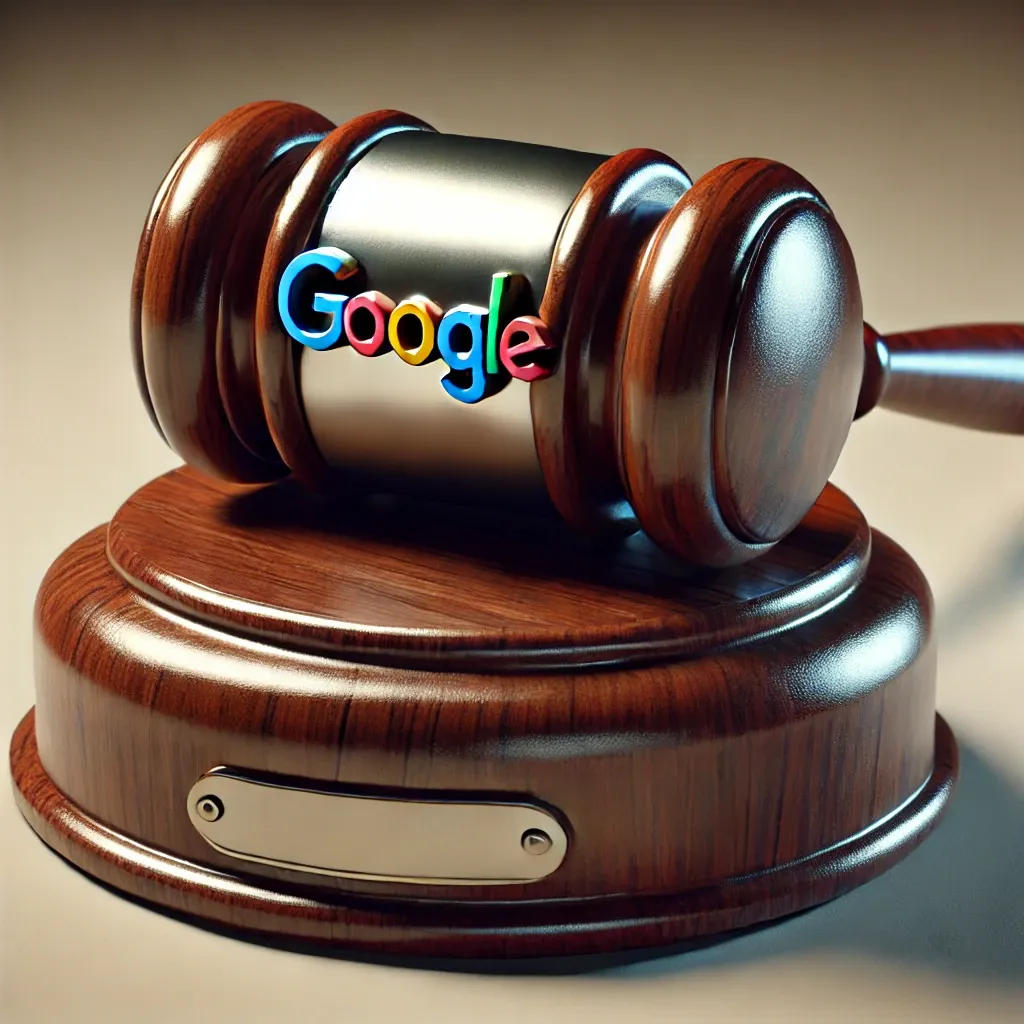
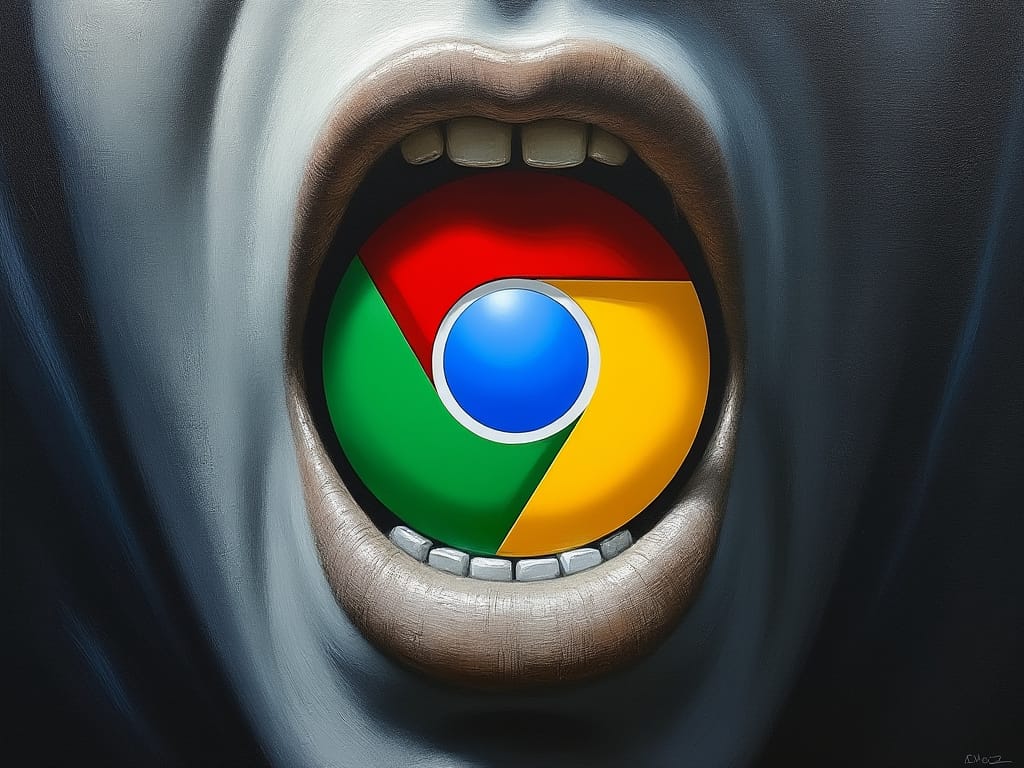
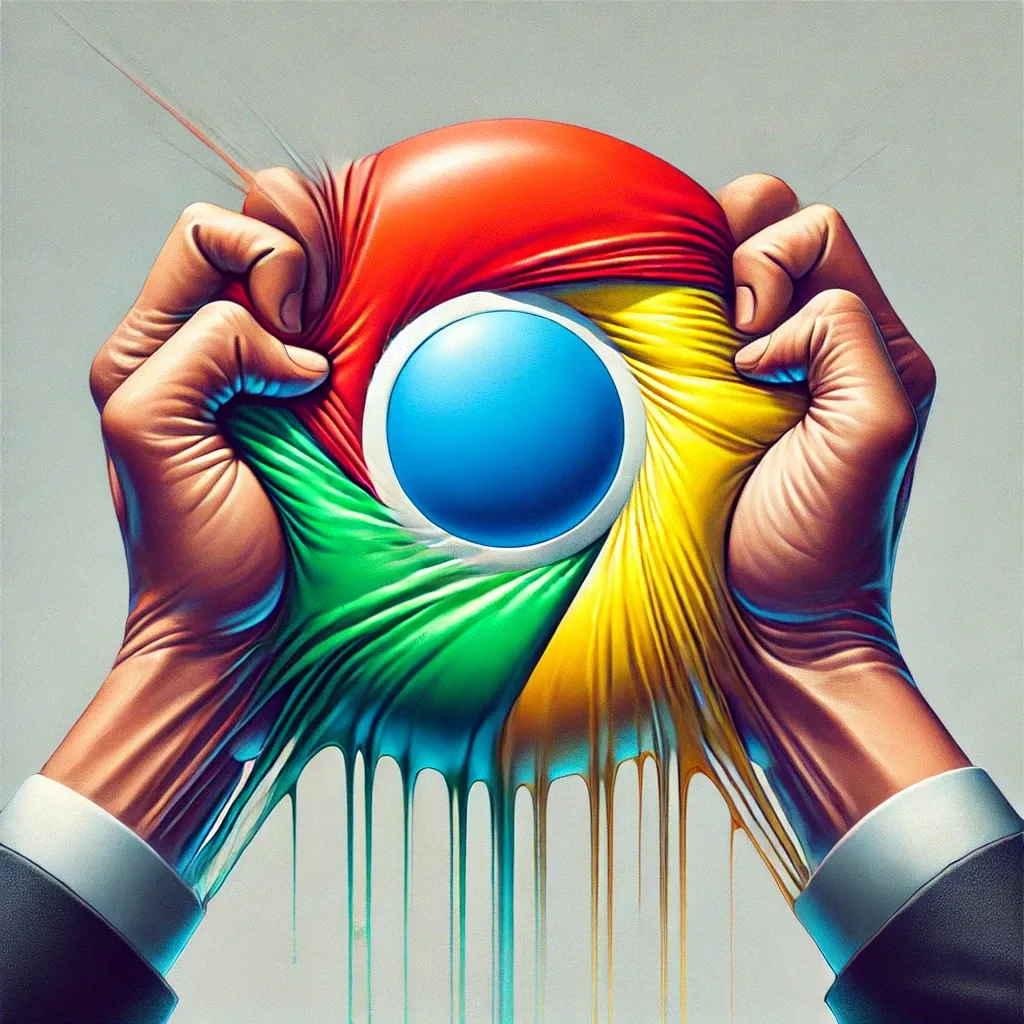
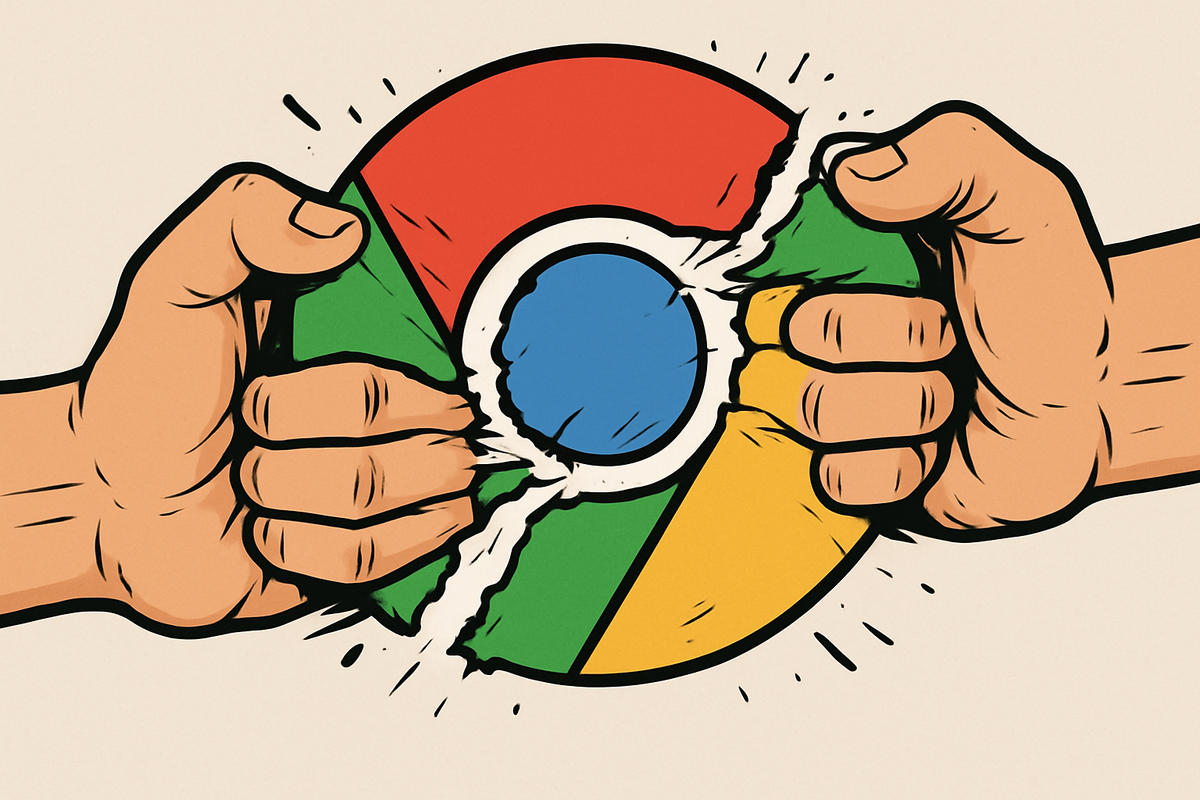

1 One bit of nuance here is that Google can apparently still strike deals for placement with partners, but these deals can't be exclusive – i.e. they can't stop competitors' services from also being offered by those partners. Perhaps most notably, this applies to AI offerings going forward as well.





